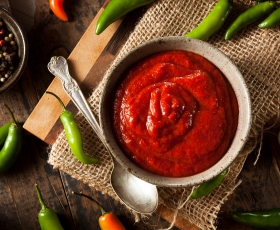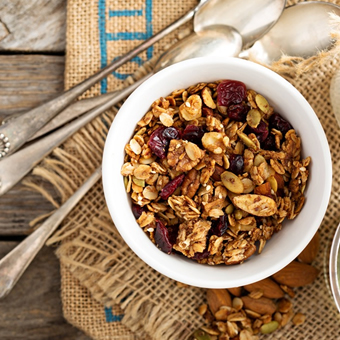Introduction
In today's hectic as well as ever-changing world, the food market is constantly progressing to satisfy the needs of consumers. One area that has seen substantial growth and development is contract food manufacturing. This process entails partnering with a specialized business to create and package foodstuff on behalf of another brand. In Australia, contract food manufacturing has come to be increasingly prominent because of its numerous benefits and benefits. In this write-up, we will explore the numerous advantages of contract food manufacturing in Australia and also just how it can assist services prosper in the competitive food industry.

Contract Food Production: What Is It?
Before diving into the benefits, allow's initial specify what contract food manufacturing involves. Contract food manufacturing, likewise referred to as co-packing or toll manufacturing, is a strategic collaboration in between a brand or company and also a specialized contract maker. The agreement maker is in charge of creating, product packaging, and also in some cases even distributing the food products on behalf of the brand. This plan enables brand names to concentrate on their core competencies such as marketing, sales, as well as product growth while leaving the manufacturing process to experts.
The Benefits of Contract Food Manufacturing
1. Cost-Effectiveness
Contract food production offers significant price savings for brands compared to constructing their own production centers. Building a food manufacturing plant calls for considerable investments in infrastructure, devices, upkeep, as well as knowledgeable labor. By partnering with a contract manufacturer, brand names can prevent these in advance prices as well as rather pay for manufacturing services on an as-needed basis.
2. Scalability
One of the key benefits of contract food manufacturing is its scalability. As a brand name expands or experiences fluctuations popular, it can quickly readjust manufacturing quantities without needing to buy added sources or tools. This adaptability enables brands to react swiftly to market adjustments and customer demands.
3. Know-how as well as Innovation
Contract makers concentrate on food production as well as have extensive knowledge and expertise in their area. They stay on par with the latest market patterns, technologies, and also regulations, making sure that the products they manufacture are of the best quality and also meet all essential standards. In addition, agreement suppliers frequently have actually committed r & d teams that can aid brands introduce and develop new food products.
4. Quality Control
Maintaining regular product high quality is critical in the food market. Agreement food suppliers have robust quality control procedures in place to guarantee that every batch of items satisfies rigorous standards as well as specs. They follow Good contract manufacturing Manufacturing Practices (GMP) as well as comply with food safety regulations, giving brands with assurance understanding that their items are safe for consumption.
5. Rate to Market
Launching a brand-new foodstuff can be a lengthy process, specifically if a brand has to develop its own production facility from scratch. Contract food manufacturing enables brand names to increase their time to market significantly. By leveraging the existing facilities and know-how of a contract supplier, brands can bring their products to market faster, getting a competitive advantage in the industry.
6. Customization and Flexibility
Contract food makers offer a variety of personalization choices for brands. Whether it's adjusting ingredient solutions, packaging layouts, or part sizes, contract manufacturers can tailor their services to satisfy specific brand name requirements. This level of personalization enables brands to produce one-of-a-kind products that resonate with their target audience.
7. Reduced Risk
Entering the food market can be dangerous, especially for startups or local business with restricted sources. Contract food manufacturing aids alleviate this threat by supplying accessibility to established production facilities and supply chains. Brands can take advantage of the knowledge and also experience of agreement producers while lessening monetary risks associated with building their very own manufacturing capabilities.

FAQs about Contract Food Manufacturing in Australia
What types of food can be produced via contract food manufacturing in Australia? Contract food manufacturing in Australia covers a large range of items including drinks, treats, frozen foods, sauces, condiments, milk items, as well as much more. The versatility of contract food manufacturing permits brand names to create different food items tailored to their certain needs.
How can contract food manufacturing in Australia aid small businesses or startups? Contract food manufacturing provides small companies as well as start-ups with an economical method to enter the food sector without the need for considerable financial investments in framework as well as equipment. It permits them to focus on constructing their brand name while leaving the production process to experts.
Is contract food manufacturing only ideal for large production? No, contract food manufacturing is suitable for both massive and small-scale production. Agreement suppliers have the adaptability to fit various production volumes based on brand requirements.

Can contract food makers aid with packaging style as well as labeling requirements? Yes, agreement food manufacturers commonly supply solutions pertaining to packaging style and also labeling. They can give advice on regulative requirements and also help brands develop attractive as well as compliant packaging for their products.
Are contract food manufacturers responsible for product circulation as well? While some agreement suppliers provide distribution services, it is not constantly included in the collaboration agreement. Brand names can choose to manage distribution themselves or work with third-party logistics carriers to guarantee their products get to the market efficiently.
What are the key aspects to take into consideration when selecting a contract food supplier in Australia? When selecting a contract food manufacturer in Australia, brand names ought to consider elements such as experience, know-how, qualifications (such as HACCP or GMP), manufacturing capabilities, record, and also track record in the market. It is additionally vital to review the supplier's capability to meet specific item needs as well as timelines.
Conclusion
Contract food production supplies numerous benefits for brands in Australia wanting to go into or increase their visibility in the competitive food market. From expense financial savings as well as scalability to experience and also advancement, partnering with a contract maker can assist brands simplify their operations, keep high product quality, and also accelerate their time to market. By leveraging the capacities of contract food suppliers, brands can concentrate on what they do best-- producing and marketing exceptional food that please consumer demands. So, if you're thinking about getting in the food industry or seeking to improve your existing operations, contract food manufacturing in Australia might be the critical solution you've been looking for.